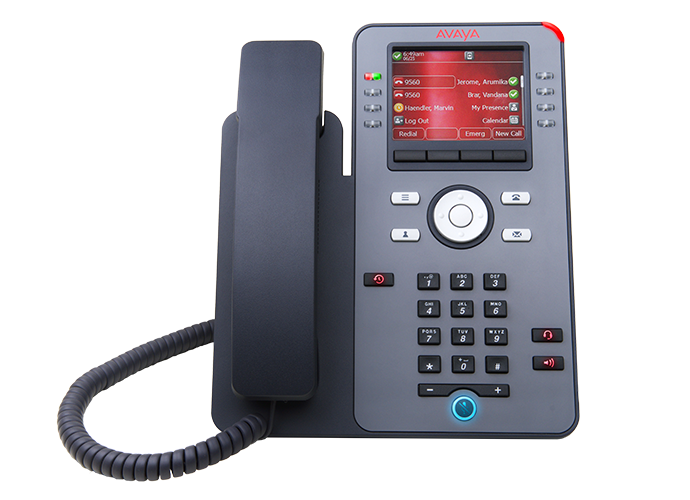PMO Corner: Avaya voice system upgrade nears completion

Syndi Haywood, associate director for UIT Voice Services and Business Administration
A significant system upgrade for Avaya, the University of Utah’s central telephone solution, is on track for completion in early December 2023, according to Brent Wimber, an IT project manager for UIT’s Project Management Office.
The upgrade from Avaya Communication Manager version 8.1 to version 10.1, an initiative in the works for more than a year, will impact approximately 15,675 hard phones and softphones, said Syndi Haywood, associate director for UIT Voice Services and Business Administration in the Chief Technology Officer organization.
Hard phones and softphones are U-managed, voice over internet protocol (VoIP)-based devices. Hard phones are hardware-based phones physically installed at university-managed locations that resemble and operate similarly to traditional desk phones; softphones are device-agnostic software applications that send and receive calls, regardless of location, over the internet.
“End users probably won’t notice a lot of new features, but the upgrade will make the platform considerably more stable and secure,” Haywood said.
Some upgrade highlights, courtesy of Haywood:
- New firmware for hard phones.
- Softphone updates for Avaya One X Agent, Avaya Workplace, and Avaya IX Workplace.
- Avaya Equinox Conferencing, a real-time secure messaging and communication tool for physicians, nurses, and caregivers, is being considered for inclusion in U disaster recovery efforts. Equinox, Haywood noted, currently serves as a backup emergency conferencing bridge for the ITS-UIT 24/7 internal Incident Response Team (IRT).
- Additional session border controllers (SBC) were deployed to better secure and control VOIP technologies for remote workers and session initiation protocol (SIP), payment card industry (PCI)-compliant hard phone users. Redundant servers were also added to the university’s Downtown Data Center and Fort Data Center to help ensure business continuity.
- Enhancements were made to Avaya’s application enablement services, a server-based software solution that integrates with Spok critical health care messaging/alerting applications and Huntsman Mental Health Institute’s constituent/customer relationship management (CRM) system.

Avaya's J179 IP phone, image courtesy of Avaya.
Avaya is a scalable communications platform used by U staff, students, and faculty on and off campus, and supports critical functions, such as campus and health care call centers, AirMed, and the Utah Poison Control Center, among others. In addition, Avaya is the centralized routing engine for all of SIP trunking on campus. A SIP trunk is a digital method of making and receiving phone calls over an internet connection. SIP trunks handle a high volume of inbound or outbound calls using a private branch exchange (PBX) server. These trunks, Haywood said, integrate Avaya to Microsoft Teams, enable Centrex five-digit dialing, and support U nursing communication systems like Vocera and Voalte.
Five distinct components, Wimber said, will culminate in the Communication Manager version 10.1 upgrade:
- Control Manager: An operational administration tool to manage day-to-day operations in Avaya Contact Center and Aura, Avaya’s flagship VMWare-based PBX solution — all from a single web-based user interface.
- Communication Manager: The core of the Avaya voice platform, Communication Manager is capable of scaling from less than 100 users up to 41,000 users on a single system, according to the vendor. It enables centralized call control (e.g., call routing and queuing) for a distributed network of media gateways and a range of analog, digital, and IP-based voice devices. Security-wise, Communication Manager applications use media encryption between servers, gateways, and endpoints to protect voice stream and signaling channels, according to the vendor.
- Proactive Outreach Manager (POM): A managed application within the Avaya Experience Portal (AEP) that delivers automated voice, email, or SMS messages, allowing recipients to choose a self-service option or speak to an agent. “Today, we use [AEP] to send appointment reminders and telephone surveys, and give our contact centers callback assist functionality,” Haywood said.
- Session Manager: A SIP routing tool that integrates all SIP devices across an enterprise network.
- Secure Access Link (SAL): A gateway that allows Avaya support personnel remote access to troubleshoot and debug problems on managed devices.
Haywood and Wimber would like to express their gratitude to the following partners in this project:
- UIT Voice Systems Engineers Roland Curtis, Jared Gronning, Julia Harrison, Corey Hayes, Tony Jess, and Brent Ridgeway
- Database Administrator Mahesh Pingili on the Data Management Platform Support Services team
- Senior Network Engineers Chris Livingston and Ken Kizer in Network Services
- Michael Adair in the Information Security Office’s Governance, Risk & Compliance team for his assistance ensuring PCI compliance
- ConvergeOne and Avaya engineers
Node 4
Our monthly newsletter includes news from UIT and other campus/ University of Utah Health IT organizations, features about UIT employees, IT governance news, and various announcements and updates.
